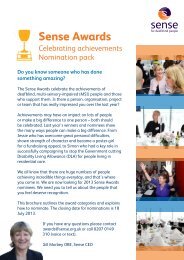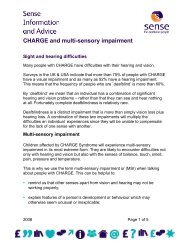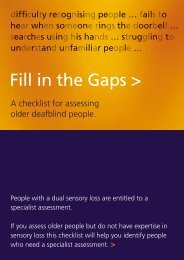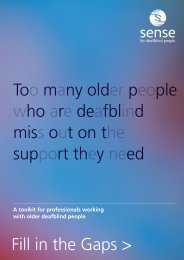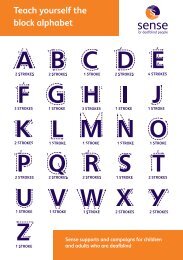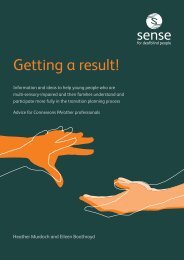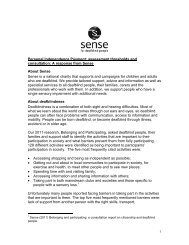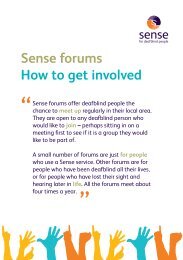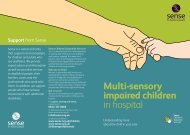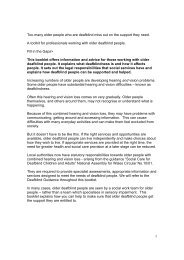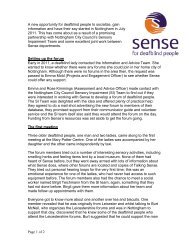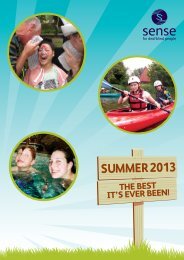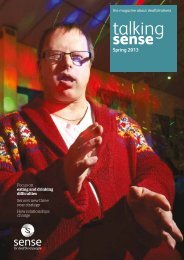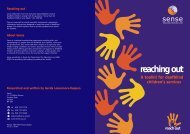MSI Unit Curriculum - Sense
MSI Unit Curriculum - Sense
MSI Unit Curriculum - Sense
You also want an ePaper? Increase the reach of your titles
YUMPU automatically turns print PDFs into web optimized ePapers that Google loves.
<strong>MSI</strong> <strong>Unit</strong> <strong>Curriculum</strong>: Phase 4hearing-impaired pupils and with main school pupils at Victoria provide differingsocial environments in which he can see different social codes in operation(Social relationships and emotional development). Harry is an astute observer,although often a reluctant participant, and his facial expression often showsfascination with these new settings.At Phase 4, pupils are encouraged to identify the environmental adaptationsor help that they need because of their sensory impairments (Ownership oflearning). Harry’s visual function is greatly affected by lighting levels, and hehas learned to look for light switches and turn lights on when necessary. He alsohas significant visual field losses, especially in his lower field. Together with hispoor balance, these affect his mobility, especially in busy situations where hemust judge the movements of others coming towards him. In such settings (forexample, in the corridor at home time) he uses a long cane, which has greatlyincreased his confidence (Sensory responses). In unfamiliar environments hetakes the hand of a member of staff, not as a matter of course but when hejudges that he needs support.Harry’s base room is set up to encourage independence, responsibility and peerinteraction. Each pupil has their own set of drawers (one for each day) containingthe equipment they need, and their own workspace (Ownership of learning).Harry often works in a group of three pupils and he is generally the leastconfident in this group. To counter this, some of his sessions (circle time, drama)include pupils less able and less sociable than he is, and he is encouraged to leadsections of the session and to help his peers. He still needs considerable supportto do this, but is making progress. Within his usual group, with encouragement,he is increasingly willing to assert himself – for example, when the group arereviewing the day, they each say which activity they have most enjoyed. Harryused always to copy his friend Ben, but has recently become willing to choosea different activity, and is clearly pleased with himself for doing so (Socialrelationships and emotional development).Harry and his peers are encouraged to interact directly with adults in a rangeof roles (shop staff, school catering staff, bus drivers etc.) rather than relying onmediation by keyworkers (Communication). Currently Harry’s communication insuch settings is usually non-verbal (offering a bus pass; pointing to the food hewants). Other pupils in his group are learning to ask a staff member to act as asign interpreter when needed.102



